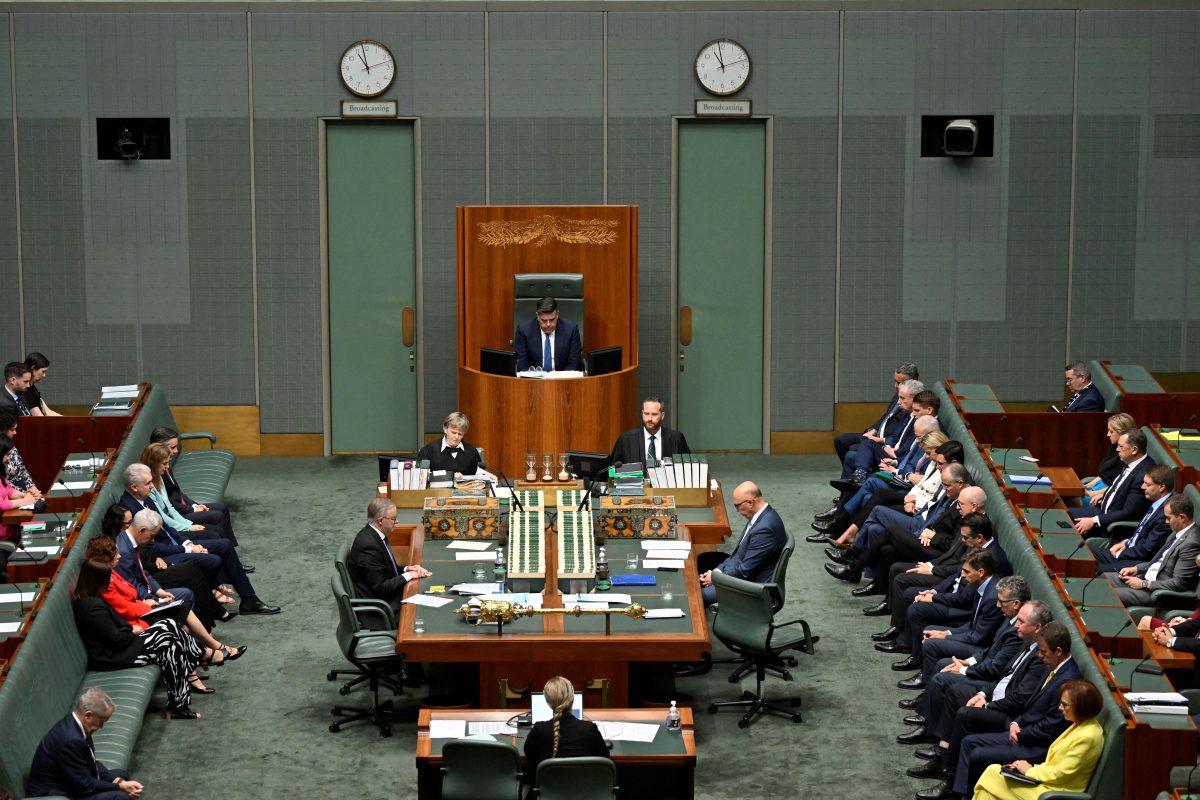
Speaker of the House of Representatives Milton Dick is reviewing standards of behaviour during Question Time. Photo: AUSPIC.
Question Time in the House of Representatives wound up on Wednesday (21 August) with a promise to review the behaviour of MPs while they are in the chamber.
Parliamentary behaviour has plummeted in recent times, with the past two sitting weeks being particularly rowdy and combative.
Following another boisterous QT on Wednesday, which ended earlier than usual at the request of Prime Minister Anthony Albanese, independent MP Allegra Spender rose to ask Speaker of the House Milton Dick permission to make a statement.
Once granted, Ms Spender asked the Speaker if he would review the standard of behaviour in the chamber.
It followed the introduction of legislation to establish a new watchdog to monitor the behaviour of parliamentarians and their staff’s adherence to the parliamentary code of conduct, which isn’t focussed on chamber antics.
“In this parliament, we have a behaviour code soon to be legislated that requires parliamentarians to, and I quote, ‘treat all those with whom they come into contact in the course of their parliamentary duties and activities with dignity, courtesy, fairness and respect’,” Ms Spender said.
“The conduct that is demonstrated in this chamber, particularly during question time, is unlike any workplace I’ve ever been in, and I think we would have a hard time convincing the public, including those perhaps in the gallery today, that we comply with this code.
“I would like to ask the Speaker to review the behaviour, language and standards in recent weeks and make any necessary statements relating to them.”
Mr Dick, who has kept busy this week shutting down more than the usual amount of interjections and ejecting unruly MPs from the chamber, said he would act on Ms Spender’s request.
“I agree with her,” he told the House as MPs were leaving the chamber.
“We must find ways to better engage in debate that maintains respectful behaviour and, in particular, upholds the standing orders.
“I shall reflect on standards and behaviour in recent times and report back to the Member.”
Mr Dick is not one to take his commitment and promises lightly, so MPs can expect that not only will he report to Ms Spender but that he will introduce a few changes to the way MPs behave during Question Time and other parliamentary sessions.
Last week, independent MP Zali Steggall became noticeably frustrated at being talked over by Opposition Leader Peter Dutton while she was on her feet speaking on a motion over the Gaza visas debate.
“We heard you in silence,” she shouted at Mr Dutton.
“You can hear me in silence. Stop being racist.”
After she repeated those comments outside of the chamber – and therefore without the protection of parliamentary privilege – Mr Dutton considered legal action against her.
At the time, however, numerous MPs (mostly women) came to Ms Steggall’s defence to comfort her while Opposition MPs (mostly men) continued shouting her down in the chamber.
The government’s legislation for the Independent Parliamentary Standards Commission was introduced in response to former sex discrimination commissioner Kate Jenkins’ Set the Standard report.
If legislated, the IPSC will be an independent workplace investigation and sanctions framework that will enforce behaviour codes for parliamentarians, their staff and others who work in Commonwealth parliamentary workplaces.
The codes set out expectations for behaviour, including requirements to foster respectful and inclusive workplaces and a prohibition on bullying, harassment, sexual harassment and assault, and discrimination.
But they do not go to how MPs behave while in the chamber.
Their conduct in the House of Representatives and the Senate are determined by standing orders policed by the presiding officers – the Speaker and the President of the Senate, respectively.
Ms Jenkins told a Comcare conference in Canberra on Tuesday that sexual harassment and bullying (outside of the chambers) had significantly improved following her report and the government’s commitment to accept her recommendations.
Original Article published by Chris Johnson on Riotact.










